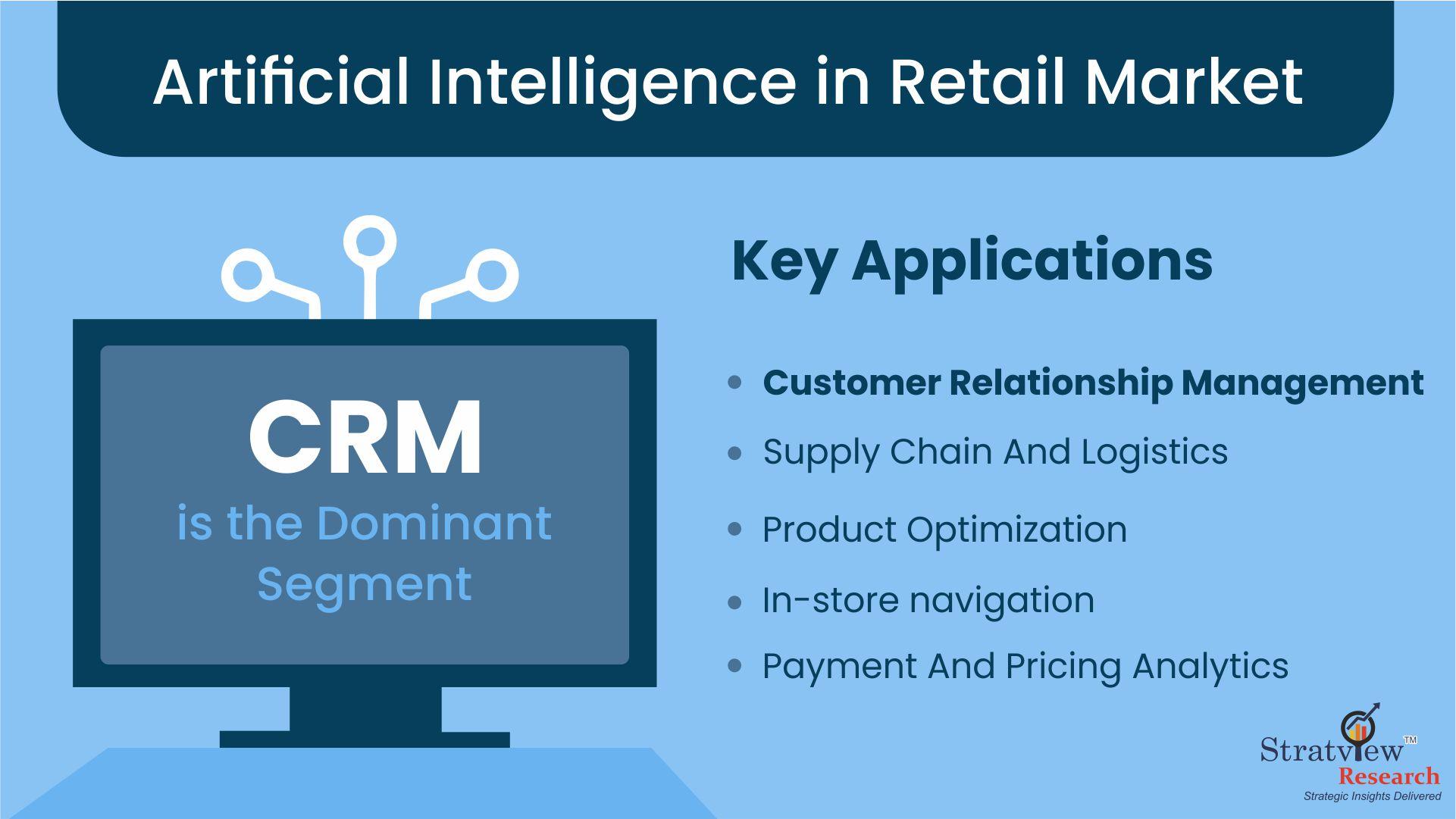Artificial Intelligence in Retail: Trends to Watch in 2024 and Beyond

Artificial intelligence (AI) is becoming a key driver of innovation in the retail industry. With advancements in machine learning, natural language processing, and data analytics, retailers are harnessing artificial intelligence to enhance customer experiences, optimize operations, and drive sales growth. As we move into 2024 and beyond, several trends in artificial intelligence are poised to transform the retail landscape.
According to Stratview Research, the artificial intelligence in retail market was estimated at USD 5.79 billion in 2022 and is likely to grow at a CAGR of 23.20% during 2023-2028 to reach USD 20.26 billion in 2028.
1. Personalization at Scale
One of the most significant trends in artificial intelligence for retail is the ability to deliver highly personalized shopping experiences. Artificial intelligence algorithms analyze vast amounts of customer data, including browsing behavior, past purchases, and preferences, to create individualized recommendations. In 2024, we can expect retailers to invest even more in AI-driven personalization tools, from tailored product suggestions to customized marketing messages. This will help brands build stronger customer relationships and improve conversion rates.
2. AI-Powered Chatbots and Virtual Assistants
AI-driven chatbots and virtual assistants are revolutionizing customer service in retail. These tools can handle a variety of tasks, from answering customer inquiries to assisting with product selection and order tracking. In 2024, expect to see smarter and more intuitive chatbots that provide human-like interactions, reducing customer wait times and enhancing satisfaction. With advancements in natural language processing, these virtual assistants will become even more accurate and efficient in understanding customer needs.
3. Predictive Analytics for Inventory and Demand Forecasting
Artificial intelligence role in inventory management will continue to expand in 2024. Retailers are using predictive analytics powered by artificial intelligence to better forecast demand, optimize stock levels, and reduce wastage. By analyzing historical data, seasonal trends, and external factors like weather or local events, artificial intelligence can help retailers predict which products will be in demand and when. This will lead to better supply chain management, more efficient stocking, and a reduction in out-of-stock situations.
4. AI-Driven Visual Search and Augmented Reality (AR)
As visual search and augmented reality (AR) technologies continue to evolve, artificial intelligence will play a critical role in their adoption in retail. AI-powered visual search allows customers to upload images of products they want to find, and the system instantly suggests similar items. Meanwhile, AR provides an immersive shopping experience, enabling customers to try products virtually before purchasing. These innovations will become more prominent in 2024, enhancing the online and in-store shopping experience.
5. Enhanced Fraud Detection and Security
Artificial intelligence is also transforming security measures in retail, particularly in fraud detection. Machine learning algorithms can analyze purchasing patterns and flag suspicious activities, reducing fraudulent transactions. As e-commerce continues to grow, artificial intelligence role in ensuring secure payments and safeguarding customer data will become increasingly vital.
Conclusion
As we head into 2024, artificial intelligence in retail is set to deliver game-changing innovations that will improve personalization, streamline operations, and enhance security. Retailers who embrace these trends will be better positioned to meet evolving consumer expectations and stay competitive in the ever-changing retail landscape.
- Art
- Causes
- Crafts
- Dance
- Drinks
- Film
- Fitness
- Food
- Jogos
- Gardening
- Health
- Início
- Literature
- Music
- Networking
- Outro
- Party
- Religion
- Shopping
- Sports
- Theater
- Wellness




